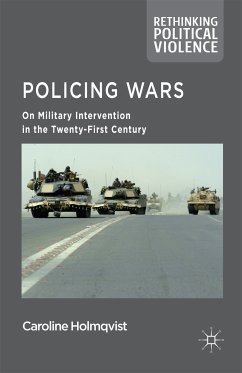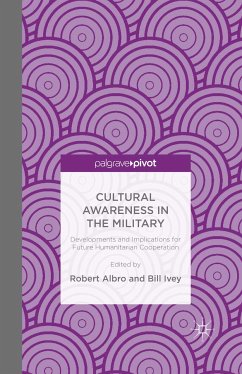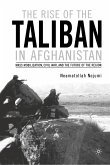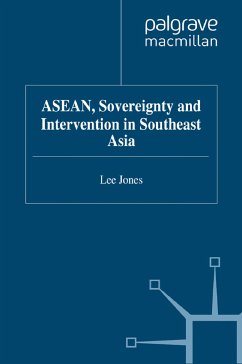Dieser Download kann aus rechtlichen Gründen nur mit Rechnungsadresse in A, B, BG, CY, CZ, D, DK, EW, E, FIN, F, GR, HR, H, IRL, I, LT, L, LR, M, NL, PL, P, R, S, SLO, SK ausgeliefert werden.
scaffolding encompassing time, space, agency and power through which war becomes a management tool for the restoration of the social contract in other peoples' countries. While real in its effects, such imagination amounts to an illusory construct of war, with results for all to see in Iraq and Afghanistan. Surpassing earlier analyses of liberal war in depth and sophistication, Holmqvist is now the definitive guide.'
Tarak Barkawi, London School of Economics and Political Science, UK
'War without antagonism is one of the great oxymorons for our time. Holmqvist explores the sense in western military theory that war can be fought without ultimate opposition when it is about reducing disorder and policing good governance. Those who resist this oxymoronic post-adversarial logic get branded and punished as obstructionist criminal elements. Holmqvist stretches the concept of contemporary war as a form of policing liberal order by tracing its roots to pre-9/11 times and spaces and by theorising its depths today. She is a compelling and important new voice on the forms, logics and implications of today's western ways of warring.'
Christine Sylvester, University of Connecticut, USA









